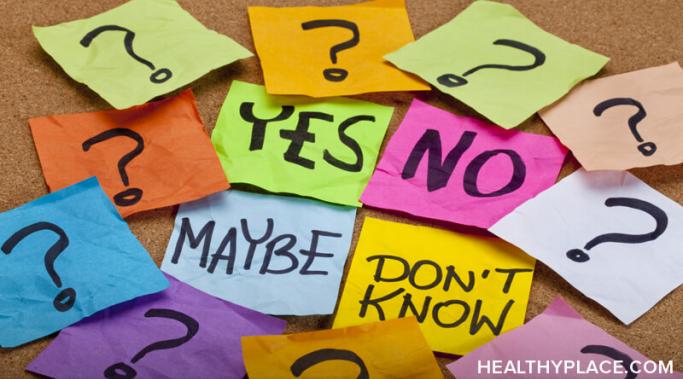Blogs
I've found that self-care for premenstrual syndrome is critical. Hormonal changes from premenstrual syndrome (PMS) cause me to feel tired, bloated, sore, depressed, and sometimes angry. There are days when I can barely get out of bed. During this time, I feel guilty for not being productive. However, to manage, it is important to be kind to myself and practice self-care for PMS symptoms. Here are six ways I take care of myself during my period.
Improving interpersonal communication with borderline personality disorder (BPD) can be a lifelong task. For me, interpersonal communication with BPD becomes a battleground where the stakes are high. One misstep could lead to unintended consequences, exacerbating my BPD symptoms.
Learning to trust yourself after trauma can feel like walking through a minefield. In my experience, if I take one wrong step, I fear my entire life will somehow implode. Even the most minor decisions send me into a fight-or-flight spiral. I deny my intuition and operate out of fear, craving a sense of security and certainty one simply cannot have in life. Learning to trust myself after trauma has been difficult.
Looking for a new job is never easy, but depression while job hunting is even worse. Being unemployed at the same time is terrible, too. Unfortunately, I have experienced that in the last couple of years. Getting lost in the cumbersome tasks of revamping my resume and applying for jobs is dispiriting. Thus, it becomes easy for job hunting to cause my depression to set in quickly.
It took me several years of personal growth and cultural awareness to realize there are systemic barriers to eating disorder treatment. My battle with anorexia was painful and tumultuous, but access to therapeutic interventions made the healing journey feel possible. While I am immensely grateful for this, I also cannot brush aside the conspicuous reality that certain prohibitive eating disorder treatment barriers still exist.
Unfortunately, retail and service workers are often the target of verbal abuse. No one deserves to be called names, insulted, or threatened, especially while doing their job. Sadly, verbal abuse in retail and service professions is becoming more frequent in many restaurants and stores.
One thing I’ve learned about having schizoaffective disorder is how to use coping skills for my symptoms. Some of the skills I’ve developed myself and some I’ve learned in therapy. Here are some of the coping skills I’ve learned for the symptoms of my schizoaffective disorder. (Note: This post contains a trigger warning.)
When you are constantly anxious, it is hard to confront traumatic experiences and process your feelings from trauma. What can end up happening as a result is that you may avoid dealing with the situation. However, processing your feelings from trauma is critical.
Do you feel frustrated when people can't pronounce your name correctly? I can relate because my name is unique, and most people mispronounce it. Worse, instead of learning the correct pronunciation, they conveniently shorten or change it without my consent. If people can't pronounce your name correctly, read on to know how you can cope with the consequent distress.
Times get tough, and I'm not immune to wanting to shut the world out when it feels too loud, too heavy, or simply too much; that's when distraction and escapism come into play. Sometimes, a little mind vacation is needed. Just like physical vacations, it can be helpful to mentally check out momentarily to rest and reset. But as with most things in life, there is a balance, and tipping the scales can have harmful consequences.










You are absolutely correct when you said, "They're still going to act like people." People are people who will act in ways we wish they wouldn't -- even the ones closest to us. That statement can be a large pill to swallow, yet it is one that we need to get down if we want to sustain our mental health. I have a specific page in my journal that lists things I can control and can't. I often look at it to remind myself that I can't control other people's actions, choices, or feelings.